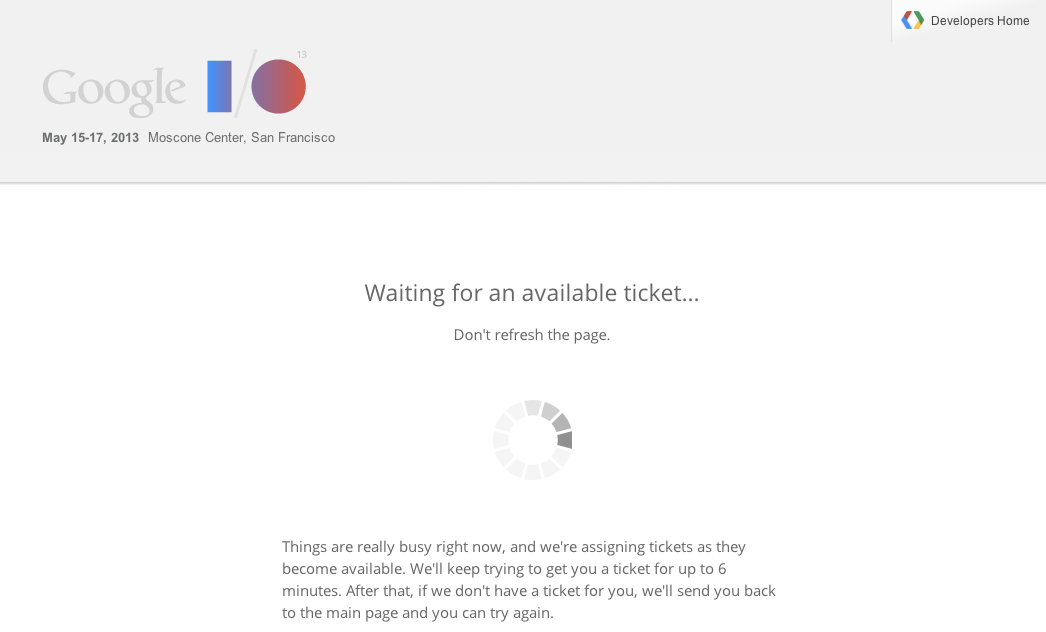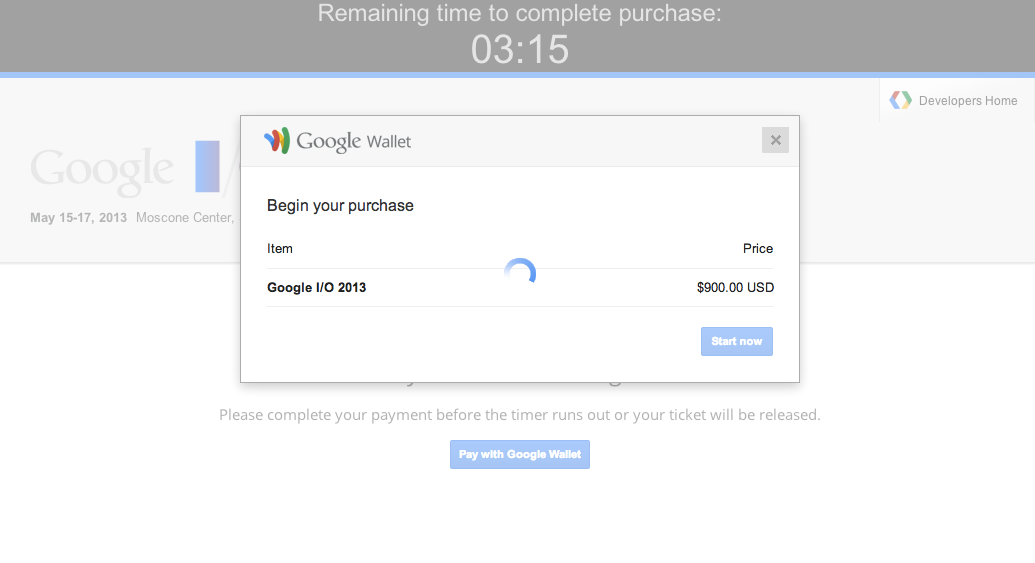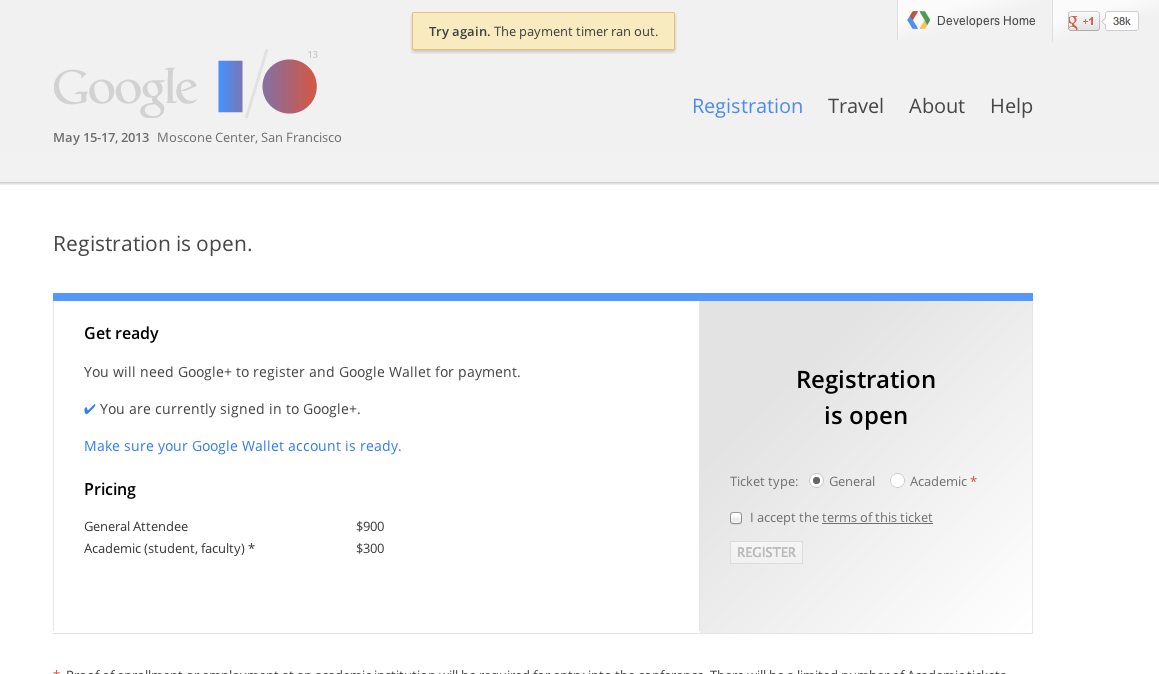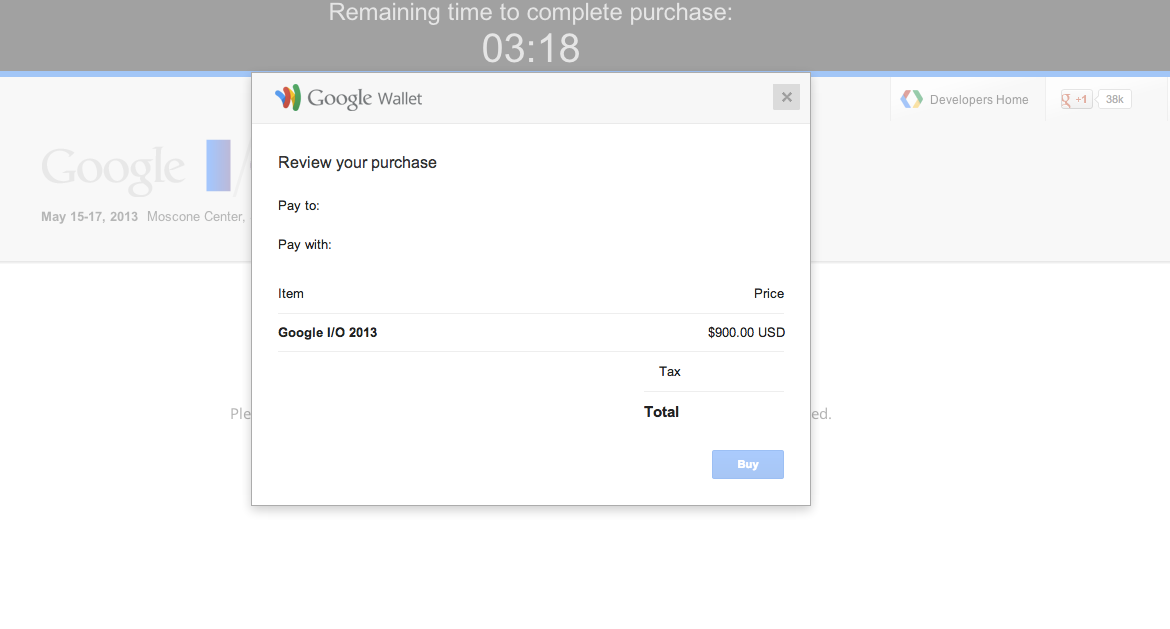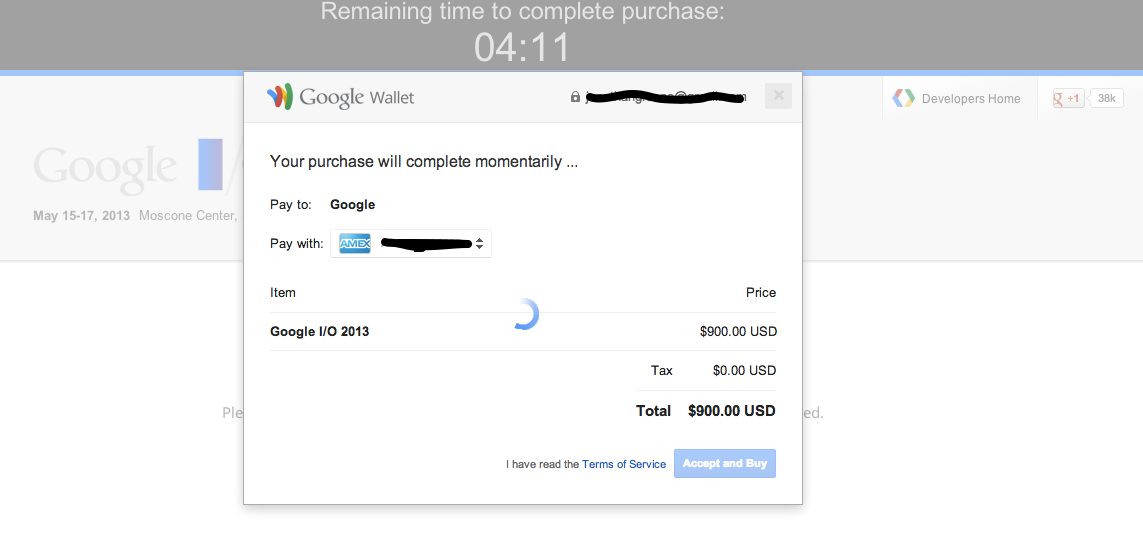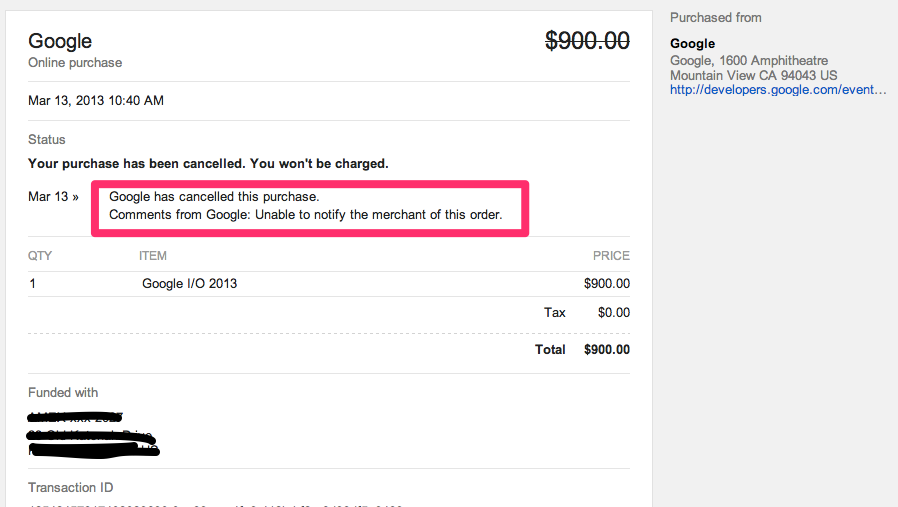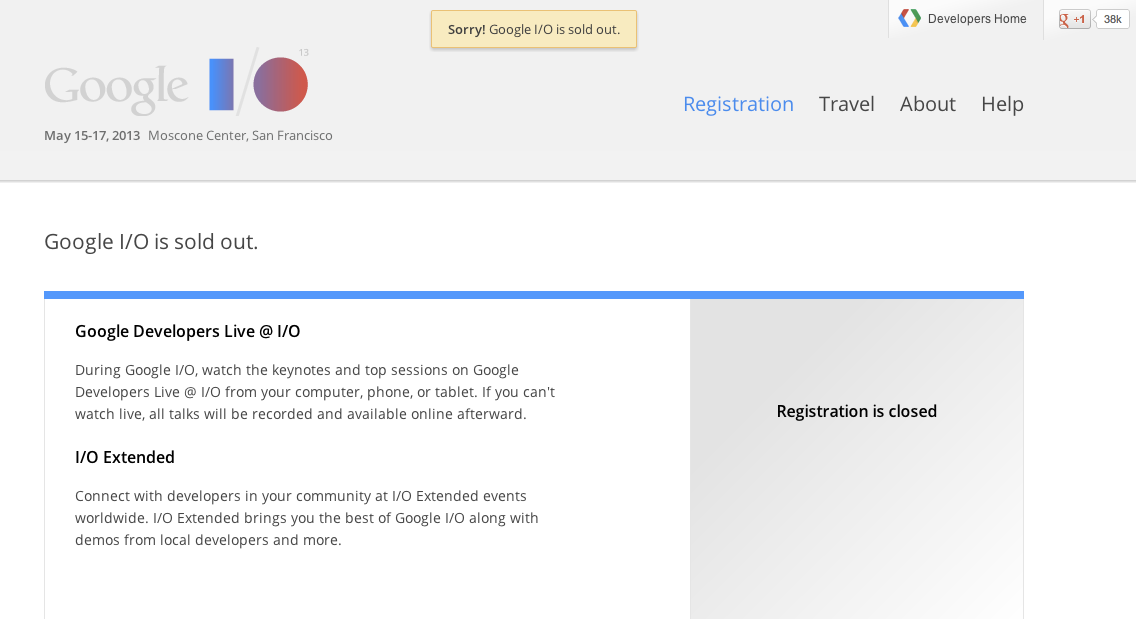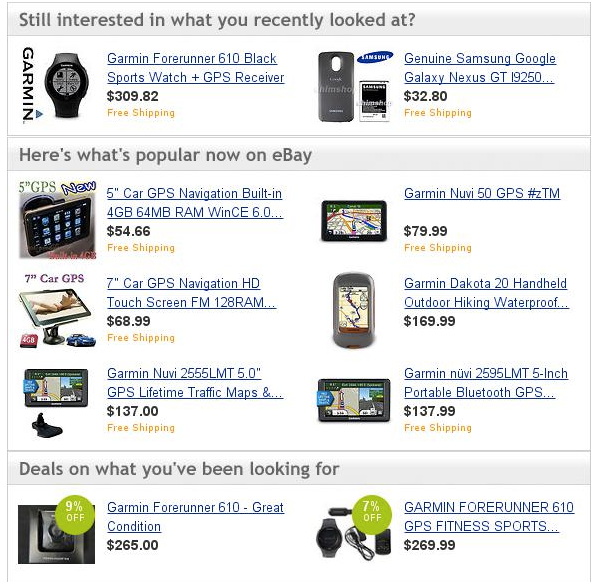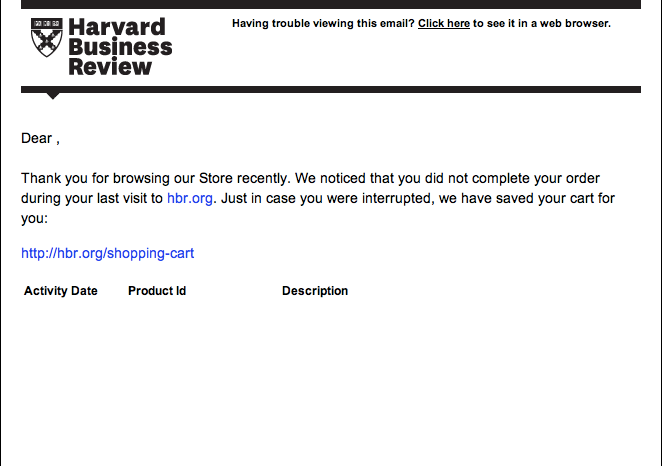I’ve written about the Pebble Smartwatch a few times now so it should be no secret to existing visitors that I’m a big fan. At SXSW, I attended the Google Glass presentation and it was there that the dots really started to connect for me … The key takeaway I found from the Glass presentation was that it’s designed to be transient in nature. The goal is not to design content units that require longer fixed attention to consume, in fact much of what we saw was designed for either a quick glance or a quick reply. This is very similar to the Pebble and I believe this really is how things are evolving – and for the better.
This past week I attended the NY Quantified Self Meetup where I shared some thoughts and observations on the current landscape and I see a natural progression to a more lightweight sense of the world around us. Quantified self technologies are becoming mainstream. As was noted in a recent QS blog post there are roughly 22 different things you can buy today in an Apple store which fall into the quantified self arena:
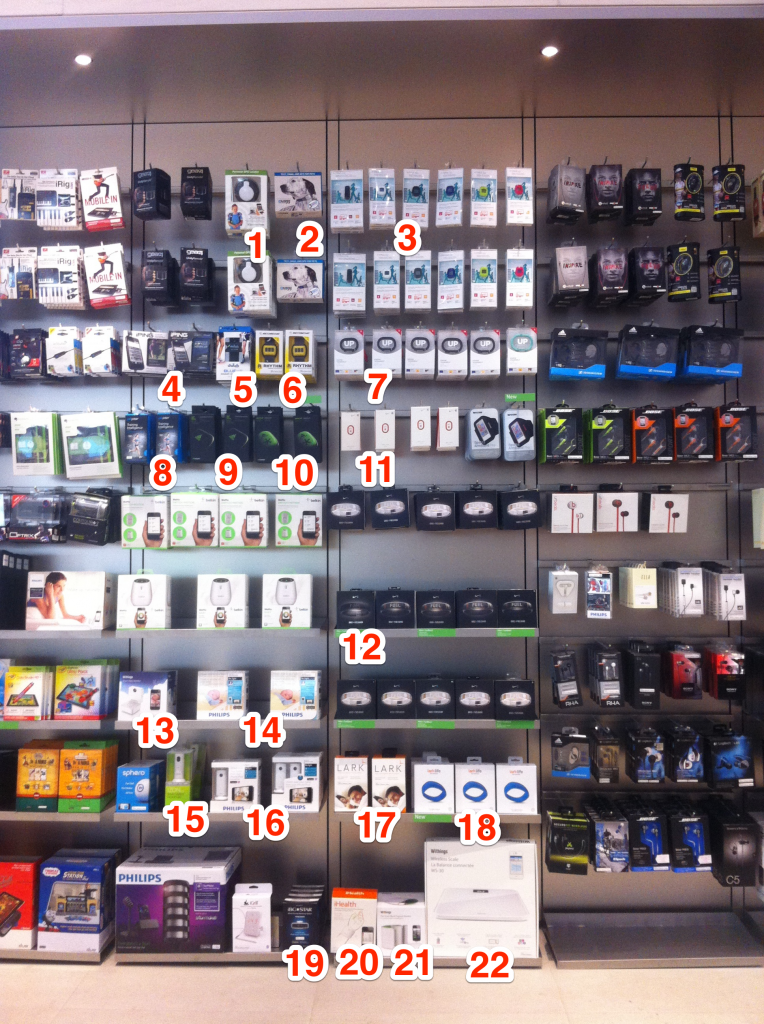
Even more recently, Samsung announced quite an array of accessories for the upcoming Galaxy S IV:
As you can in that slide, Samsung has a wrist band, heart rate monitor and scale all designed to be paired with the phone and its accompanying applications and services. Given the volume of S III Sales (between 30 and 40 MM units to date) I think it’s reasonable to assume the next generation will be met with continued success. This isn’t about the phone though it’s about the potential for reaching a scaled market with these measurement tools … and importantly how things like this can be played back to the user.
I see a natural progression here. As people get accustomed to more readily understanding themselves, they are likely to seek a broader understanding and even control of the world around them … and this leads to more connected products and services. Whether you are tracking your suitcase once it’s been checked, remotely unlocking your front door or even just having a fun family vacation at Disney, connectivity and the value of the data can provide comfort in knowledge or provide access to a higher level of service.
With my Pebble usage as a proxy, I can see how regular bite-size updates, suggested measurement times and general awareness of my world have provided a benefit. As I noted recently
- I love having my phone on permanent silent.
- I love being able to quickly glance down to see what’s happening when I get a buzz on my wrist and getting just enough info to know whether I should take action or not.
- I love giving more attention back to the people I’m with rather feeling compelled to the phone.
I’m more connected to the world around me. Literally. I feel more able to focus in the moment more often. While I’m certainly still looking to my phone or other screens, it’s with less urgency and I generally know what to expect, what I need to respond to and find few surprises when I unlock the screen.
The next phase of this will be more contextual and we are seeing this evolution in apps already with things like Friday that collect your activities to build a semantic timeline, Tempo and Sunrise adding helpful details like contact info and directions to our calendars, app integration with Foursquare, and Highlight etc. With a little 3rd party assistance I’m actually getting quite a bit of this (not the iOS apps) pushed onto my Pebble. As soon as I saw the details of Glass in that SXSW presentation, I saw the connection and got very excited. Glass represents a very clear opportunity for this to be taken to the next level. While the Pebble is really a great little device, it’s 1.0 and Glass even in its early state could take the perspective to 2.0. I’m in no way suggestion or looking for a constant heads up display, but the transient, glanceable datastream on something like Glass seems like it would be incredible empowering.
I just wish I’d submitted a #ifihadglass entry.


